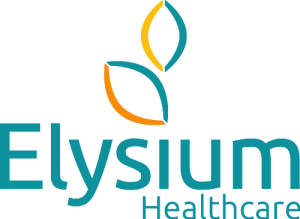Work that we have done
We are undertook a number of community engagement events, they were co-produced and co-facilitated by people with ‘lived experience’. Lived experience representatives were recruited and co-facilitated events in their local areas across the West Midlands.
The events took the findings from our needs assessment and explored in detail the specific inequalities such as (age, gender, transgender, deprivation, autism, homelessness, ethnicity, sexuality) themes and experiences and impacts on different population groups across our inpatient and community services.

We then took the findings from the events and had a small working group comprising of both stakeholders and service users to develop the Strategy.
The working group took the findings and developed a strategy for implementation where we:
-
Developed a vision for future adult eating disorder services to reduce health inequalities
-
Developed a working action plan for implementation across our inpatient and community services
- Evaluated the impact of our Strategy and Plan and continued to build on the work completed to create our vision
Whats been happening since the launch of our Health Inequalities Strategy?
Below are just a few of the projects and tasks that we have completed so far since the launch of our strategy. We have done so much more and are continuing to work on embedding our strategy across all providers, partners and services within the west midlands.
Need identified:
Patients faced financial constraints: buying high volumes of food for weight restoration plans, going out for meals, paying for prescriptions, travel costs, technology deprivation
What we did:
- Identified local food banks and created affordable and culturally appropriate options which was shared across the west midland’s region
- Encouraged professionals to keep appointments local for patients to save on travel cost
Need identified:
Eating Disorder services may not be inclusive, E.g. referral forms, using BMI as the only indicator, and not using correct pronouns.
What we did:
- Sourced, shared and funded training for staff to help with understanding and knowledge of LGBTQ+ communities
- Reduced barriers to accessing services by preparing services for non-binary or trans patients before treating them
Need identified:
Men face barriers when accessing services due to under-representation and lack of understanding of the eating disorder symptoms affecting men
What we did:
- Training for Primary Care professionals aimed at educating those who may come into contact with males with eating disorders. Improved knowledge around recognising signs and symptoms of Males with eating disorders.
- Improved male involvement in working groups within the collaborative by using our lived experience/peer support networks
Need identified:
People with autism face barriers when accessing eating disorder services
What we did:
- Recruited an experienced and dedicated autism practitioner to work with patients and teams to increase knowledge and understanding of autism within inpatient, outpatient and community environments
- Specialist Autism training sessions held across the west midlands
- Increased awareness of sensory needs and review if clinical environments meet the needs of our patients by hosting sensory walk arounds




